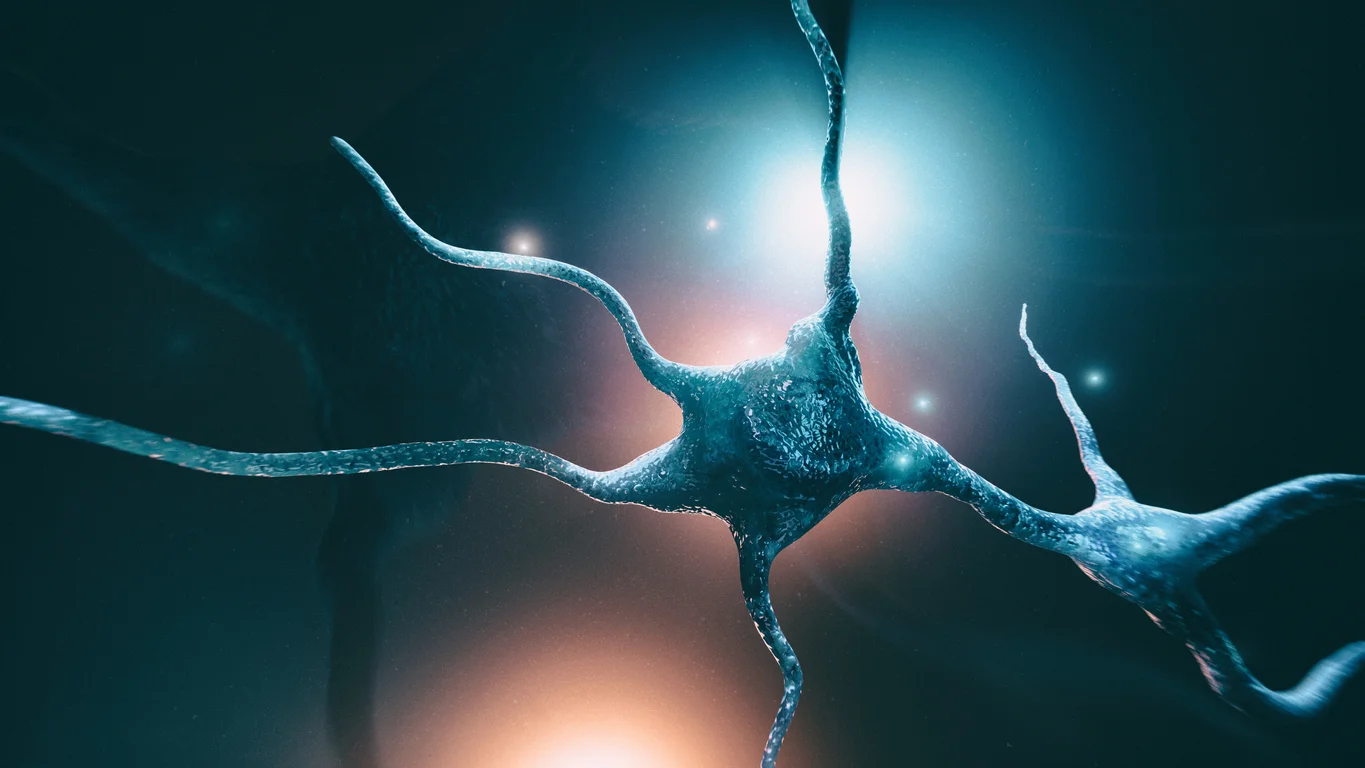What is MDMA Therapy?
In recent years, the world of mental health therapy has witnessed the emergence of a revolutionary approach: MDMA Therapy. This in-depth guide delves into the intricacies of MDMA Therapy, unravelling its potential in treating various mental health conditions such as depression, anxiety, and PTSD. We’ll explore its legal status in the UK, its effectiveness, and how it differentiates from traditional therapy methods. Numinous Ways is at the forefront of this transformative journey, preparing to integrate MDMA therapy into our suite of treatments. Join us as we journey through the transformative world of MDMA Therapy, a beacon of hope in the realm of mental health and personal growth.

What is MDMA Therapy?
MDMA Therapy represents a groundbreaking shift in the treatment of mental health disorders. Unlike traditional therapies, MDMA Therapy involves the administration of MDMA in a controlled, therapeutic setting, usually in combination with talk therapy. This innovative approach aims to enhance introspection and emotional processing, making it particularly effective for conditions deeply rooted in traumatic experiences.
At its core, MDMA Therapy is based on a non-directive approach, where therapists support the patient’s journey without leading or directing it. The therapy typically involves three sessions of MDMA-assisted psychotherapy, interspersed with talk therapy sessions to help patients integrate their experiences. This method is particularly notable for its ability to foster deep self-reflection and emotional release, often leading to significant breakthroughs in treatment-resistant cases.
Clinical trials have shown remarkable results, especially for individuals with severe PTSD. For instance, in a notable Phase 3 trial, a significant percentage of participants no longer met the criteria for PTSD following their treatment course. These results underscore the potential of MDMA Therapy as a transformative tool in mental health care.
In the next section, we will explore the current legal status of MDMA Therapy in the UK and its implications for future treatment options.

Legal Status of MDMA Therapy in the UK
When discussing the potential of MDMA Therapy, it’s crucial to understand its legal status, especially in the context of the United Kingdom. As of now, MDMA is classified as a Class A drug in the UK, which places it under the highest level of control and restriction. This classification implies significant legal penalties for unauthorized use, sale, or possession of the substance.
Despite these restrictions, there’s a growing interest in the therapeutic potential of MDMA. In response to promising research and clinical trials, the UK has taken steps towards recognizing the potential benefits of MDMA in a therapeutic setting. The Innovation Passport, for instance, has been granted for MDMA as an adjunct to therapy for PTSD. This initiative does not reduce the burden of demonstrating safety and effectiveness but provides valuable support for research and development in clinical trials.
This shift in regulatory perspective is a significant step forward for MDMA Therapy. It aligns key regulatory and healthcare systems across the UK, ensuring collaboration and patient input throughout the clinical trial process. While this doesn’t immediately translate into legal therapeutic use, it marks a crucial step towards potential future availability for patients with PTSD and other mental health conditions.
As we keep a close eye on the evolving legal landscape, it’s important to remember that any therapeutic use of MDMA will be contingent on further research, safety evaluations, and eventual regulatory approvals. The potential of MDMA-assisted therapy as part of the solution for serious mental health conditions like PTSD is undeniable, but it must be approached with caution and within the legal frameworks.
In our next section, we’ll delve into the effectiveness of MDMA Therapy in treating depression, anxiety, and PTSD.

Effectiveness of MDMA Therapy in Treating Depression, Anxiety, and PTSD
The exploration of MDMA Therapy in treating mental health conditions has yielded promising results, particularly in the context of depression, anxiety, and Post-Traumatic Stress Disorder (PTSD). The crux of MDMA’s effectiveness lies in its unique ability to foster an environment of heightened empathy and reduced fear, which can be transformative for those undergoing therapy.
Treating PTSD
MDMA Therapy has shown remarkable efficacy in treating PTSD, a condition often resistant to traditional treatments. Clinical trials have demonstrated that a significant portion of PTSD patients who underwent MDMA-assisted therapy experienced a drastic reduction in symptoms. Remarkably, many participants in these trials no longer met the criteria for PTSD after completing the therapy sessions.
Impact on Depression and Anxiety
While the primary focus of MDMA Therapy research has been on PTSD, its implications for treating depression and anxiety are also significant. The therapy’s potential to enable patients to confront traumatic memories and negative emotions without the associated intense pain makes it a promising avenue for treating these conditions. The therapy fosters a sense of self-compassion and understanding, which can be particularly beneficial for those struggling with depressive and anxious symptoms.
Long-Term Effects
One of the most striking aspects of MDMA Therapy is its long-term effectiveness. Unlike many traditional treatments where symptoms may re-emerge, MDMA-assisted therapy has shown sustained improvements in patients’ mental health. This lasting impact highlights the potential of MDMA Therapy as a game-changer in the field of mental health treatment.
It’s important to note that while the results are promising, MDMA Therapy is not a one-size-fits-all solution. It requires careful consideration, professional guidance, and is part of a broader therapeutic process.
In the next section, we will explore the specifics of how therapy with MDMA works to facilitate these healing processes.

How Does Therapy with MDMA Work?
The process of MDMA therapy is a carefully structured approach that combines the use of MDMA with psychotherapy sessions. This combination creates a unique environment conducive to deep psychological healing. The therapy typically involves several stages:
Preparatory Sessions
Before the MDMA session, patients undergo preparatory sessions with therapists. These sessions establish trust, set intentions, and prepare the individual for the MDMA experience. It’s a time for patients to understand the process and set their mindsets for the journey ahead.
MDMA Sessions
During the MDMA sessions, patients consume a controlled dose of MDMA in a safe, supportive setting under the guidance of trained therapists. The MDMA induces a state of heightened emotional sensitivity, reduced fear, and increased empathy, creating an optimal condition for therapeutic work. Patients are encouraged to explore their emotions and memories, often gaining new perspectives on past traumas and current mental health challenges.
Integration Sessions
Perhaps the most critical aspect of MDMA therapy is the integration phase. After the MDMA experience, patients engage in integration sessions where they process and make sense of their experiences. These sessions help patients apply insights and emotional breakthroughs to their daily lives, reinforcing positive changes and coping strategies.
Safety and Support
Throughout the therapy, patient safety and support are paramount. Therapists remain attentive and supportive, guiding the patient through the experience without leading or directing it. The non-directive approach allows patients to explore their inner thoughts and feelings in a space that feels safe and accepting.
The Role of the Therapist
Therapists play a crucial role in MDMA therapy, offering support and guidance while allowing patients to lead their journey. Their role is not to interpret the experience but to facilitate a space where patients can explore and understand their emotions and thoughts.
This innovative approach to therapy offers profound potential for healing, especially for those who have found traditional therapies ineffective. The unique combination of pharmacological and psychological support in MDMA therapy opens new avenues for understanding and treating complex mental health conditions.
In our next section, we will delve into the specifics of MDMA Couples Therapy and its potential benefits.

What is MDMA Couples Therapy?
MDMA Couples Therapy is an innovative approach that extends the benefits of MDMA-assisted therapy to the realm of relationship counseling. This form of therapy aims to enhance emotional connection, communication, and empathy within a romantic partnership.
The Therapeutic Process
In MDMA Couples Therapy, both partners participate in the therapy sessions together. Similar to individual MDMA therapy, the process involves preparatory sessions, MDMA sessions, and integration sessions. The key difference lies in the focus on the relationship dynamics and interactions between the partners.
Building Emotional Intimacy
One of the primary benefits of MDMA Couples Therapy is its ability to foster emotional intimacy and openness. MDMA’s effects can help reduce barriers to communication, allowing partners to express their feelings and thoughts more freely and empathetically. This enhanced communication can lead to a deeper understanding and resolution of underlying issues in the relationship.
Addressing Relationship Challenges
MDMA Couples Therapy can be particularly beneficial for couples facing challenges such as communication breakdowns, unresolved conflicts, or emotional disconnection. The therapy provides a unique setting where couples can address these issues in a supportive and emotionally open environment.
Safety and Guidance
As with individual MDMA therapy, the safety and guidance provided by trained therapists are crucial. Therapists help guide the couple through the experience, ensuring a safe and constructive environment. The non-directive approach allows the couple to explore their relationship dynamics without judgment or bias.
Potential and Considerations
While MDMA Couples Therapy shows potential, it is important to approach it with the same considerations as individual MDMA therapy. It requires careful screening, professional guidance, and is conducted in a controlled and therapeutic setting.
In the next section, we will explore the potential side effects and safety considerations of MDMA Therapy.

Are There Any Side Effects? Is it Safe?
MDMA therapy, like any therapeutic intervention, comes with its own set of considerations regarding safety and potential side effects. Understanding these is crucial for anyone considering or advocating for this type of therapy.
Potential Side Effects
While MDMA therapy has shown promising results in clinical trials, it’s important to acknowledge the potential side effects. These can include but are not limited to:
- Temporary psychological discomfort, such as anxiety or confusion during the MDMA experience.
- Physical side effects like nausea, increased heart rate, and changes in body temperature.
- Post-session fatigue or mood changes as the body and mind process the experience.
It’s important to note that these side effects are typically temporary and manageable within the controlled setting of the therapy.
Safety Measures in Clinical Settings
MDMA therapy is conducted in a controlled, clinical setting under the guidance of trained professionals. This setting ensures that any potential risks are minimized. Participants are screened for health conditions that may contraindicate the use of MDMA, and therapists are trained to manage any adverse reactions.
Ongoing Research and Monitoring
Research into MDMA therapy is ongoing, with safety being a top priority. Clinical trials are designed to monitor participants closely for any adverse effects and to adjust protocols as needed to ensure safety.
Informed Consent
Informed consent is a cornerstone of MDMA therapy, as with any medical treatment. Participants are made fully aware of the potential risks and benefits before they begin therapy. This ensures that they can make an informed decision about their participation.
The Role of Integration
Post-session integration therapy is vital in helping participants process their experiences safely and effectively. This phase of therapy ensures that any insights gained during the MDMA sessions are properly understood and integrated into the participants’ lives.
In summary, while MDMA therapy has shown significant potential in treating various mental health conditions, it’s important to approach it with an understanding of its potential side effects and the importance of a safe, controlled therapeutic environment.
In our next section, we will conclude our discussion with final notes on MDMA therapy.

Final Notes on MDMA Therapy
As we conclude our exploration of MDMA therapy, it’s clear that this innovative approach holds significant promise in the realm of mental health treatment. Its potential to facilitate deep emotional healing in a safe, controlled environment offers new hope for those grappling with complex psychological conditions.
A Future Perspective
The evolving landscape of psychedelic-assisted therapy, including MDMA, is a testament to the ongoing quest for more effective mental health treatments. As research continues and legal frameworks evolve, it’s possible that MDMA therapy could become a more widely accessible option for those in need.
Numinous Ways’ Commitment
At Numinous Ways, we are committed to staying at the forefront of therapeutic innovations. Our practitioners are being trained in MDMA therapy, preparing for the time when it becomes legally permissible in the UK. We believe in the transformative power of this therapy and are dedicated to offering it to our clients as soon as it’s possible.
A Call to Reflect and Explore
We invite our readers to reflect on the potential of MDMA therapy and to stay informed about its developments. For those who are curious about alternative therapeutic options, our retreats offer a range of holistic treatments designed to foster mental, emotional, and spiritual well-being.
Embracing a Holistic Approach
Numinous Ways embraces a holistic approach to wellness, recognizing the interconnectedness of mind, body, and spirit. Our retreats are designed to nurture all aspects of your being, helping you find balance and harmony in your life.
For more information about our retreats and the innovative therapies we offer, please visit our main retreat page.
Thank you for joining us on this informative journey through the world of MDMA therapy. We hope this guide has provided valuable insights and a deeper understanding of this emerging field.
References
Amoroso, T., & Workman, M. (2016). Treating posttraumatic stress disorder with MDMA-assisted psychotherapy: A preliminary meta-analysis and comparison to prolonged exposure therapy. Journal of Psychopharmacology, 30(7), 595–600. https://doi.org/10.1177/0269881116642542
Anderson, K. (2017). Navigating intimacy with ecstasy: The emotional, spatial and boundaried dynamics of couples’ MDMA experiences [London South Bank University]. In Psychology. https://www.researchgate.net/publication/328319587_Navigating_intimacy_with_ecstasy_The_emotional_spatial_and_boundaried_dynamics_of_couples%27_MDMA_experiences?channel=doi&linkId=5bc65103458515f7d9bf8f15&showFulltext=true
Baggott, M. J., Kirkpatrick, M. G., Bedi, G., & de Wit, H. (2015). Intimate insight: MDMA changes how people talk about significant others. J Psychopharmacol, 29(6), 669–677. https://doi.org/10.1177/0269881115581962
Bershad, A. K., Miller, M. A., Baggott, M. J., & de Wit, H. (2016). The effects of MDMA on socio-emotional processing: Does MDMA differ from other stimulants? J Psychopharmacol, 30(12), 1248–1258. https://doi.org/10.1177/0269881116663120
Carlin, S. C., & Scheld, S. (2019). MAPS MDMA-Assisted Psychotherapy: Code of Ethics. MAPS Bulletin, 29(1), 24–27.
Nardou, R., Lewis, E. M., Rothhaas, R., Xu, R., Yang, A., Boyden, E., & Dölen, G. (2019). Oxytocin-dependent reopening of a social reward learning critical period with MDMA. Nature, 569(7754), 116–120. https://doi.org/10.1038/s41586-019-1075-9



